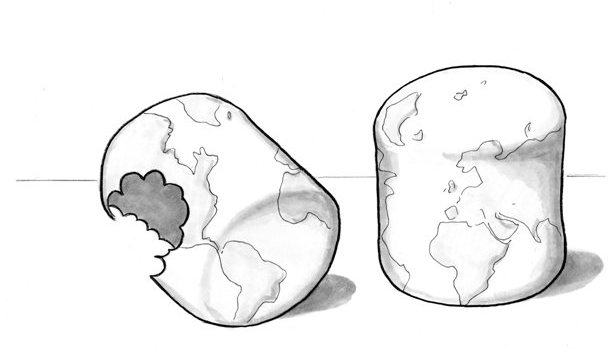Sam Harris: Can Psychedelics Help You Expand Your Mind?

Sam Harris recently visited Big Think to discuss a variety of topics including the illusion of the self, secular spirituality, and the use of psychedelic drugs. That last topic is one Harris has written about at length both on his website and in his new book, Waking Up. The video clip below features a discussion of Harris’ feelings toward psychedelics, a weighing of their pros and cons, and examples of how one can achieve similar states of awareness without their use:
Harris makes sure to be upfront about how he can’t recommend the use of psychedelics without serious caveats. The neuroscientist and best-selling author notes their neurotoxicity and observes that not everyone’s experience with them will be positive. Psychedelics won’t guide users to enlightenment, but their nature and effects on the brain are of neuroscientific interest and importance.
Within that context, Harris describes psychedelics as indispensable tools from early in his inquiry and a means through which one can tap into a very different perspective on existence. While such an experience is attainable through different channels, Harris quotes Terence McKenna, who once said, “Psychedelics are the only method that truly guarantees an effect.” For those unable to elicit breakthroughs through yoga or mindfulness, Harris says psychedelics can be something of a crash course on the dynamism of consciousness:
“If someone gives you 100 micrograms of acid something is going to happen. Two hours later the significance of your existence will have just been borne down on you like an avalanche. And again this can be terrifying or it can be absolutely sublime depending on various causes and conditions. But the one thing it cannot be is boring. And that is you can’t say that about yoga or meditation or just going into solitude or anything else that – any other, you know, non-pharmacological means of inquiry.”
Despite the guarantee of an effect, Harris explains that psychedelics are best thought of as advertisements for the possibility of a change in consciousness. Therefore, he doesn’t believe they can be durable methods for spiritual inquiry. Psychedelics are merely one avenue by which people can experience Consciousness 101. Again, it’s a crash course.
Harris describes his first experience using MDMA in 1987 before it became a major party drug. Back then, it was something coming out of the therapeutic community and was being used as a tool for psychotherapy. So Harris and a friend sat in a room for a few hours and had a conversation on MDMA in order to discover something new about the nature of their minds:
“And what was revelatory about it was that it was an experience of absolute sobriety. It was not – there was no druggy component to it. We just became clearer and clearer and clearer in our thinking and feeling. And the crucial component of this was a loss of any feeling of self-concern.”
Harris found that the veneer of insecurity, fear, and self-consciousness that envelops almost every social situation simply evaporated when on MDMA. All that was left was a naked awareness of Harris’ love for his friend and all of humanity. There was no pettiness, envy, or self-concern. There was simply the connection. It was a life-changing moment for Harris:
“And so, you know, that was the experience I had on MDMA. It, you know, frankly blew my mind and it took me years for me to integrate this understanding of this possibility into my intellectual life. And it prompted me to seek to have this experience in other ways, you know, for many, many years.”
As was mentioned before, since psychedelics are not a durable method for achieving this sort of “naked awareness,” Harris sought out other avenues. What he found is that the experiences one has on drugs can be replicated without their use. All psychedelics do is tinker with the brain’s neurotransmitters. With the right methods and discipline, one can train him- or herself to reach these states through mindfulness:
“And the truth is virtually any experience you can have with psychedelics you can have without psychedelics because all psychedelics do is modulate the existing neurochemistry of the brain…. I have had the same experience to more or less a similar degree just through meditation. But it’s clear to me that I would never have suspected that such an experience was possible but for my experimenting with MDMA in the beginning. So I have to just acknowledge that.”





